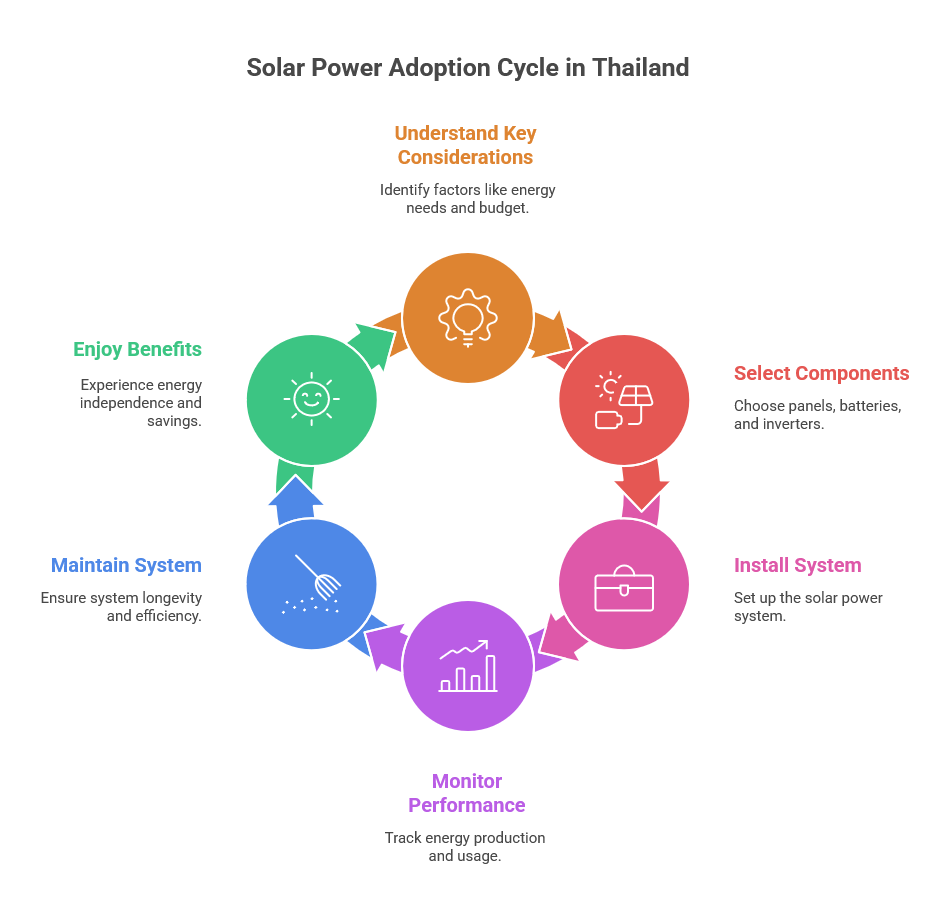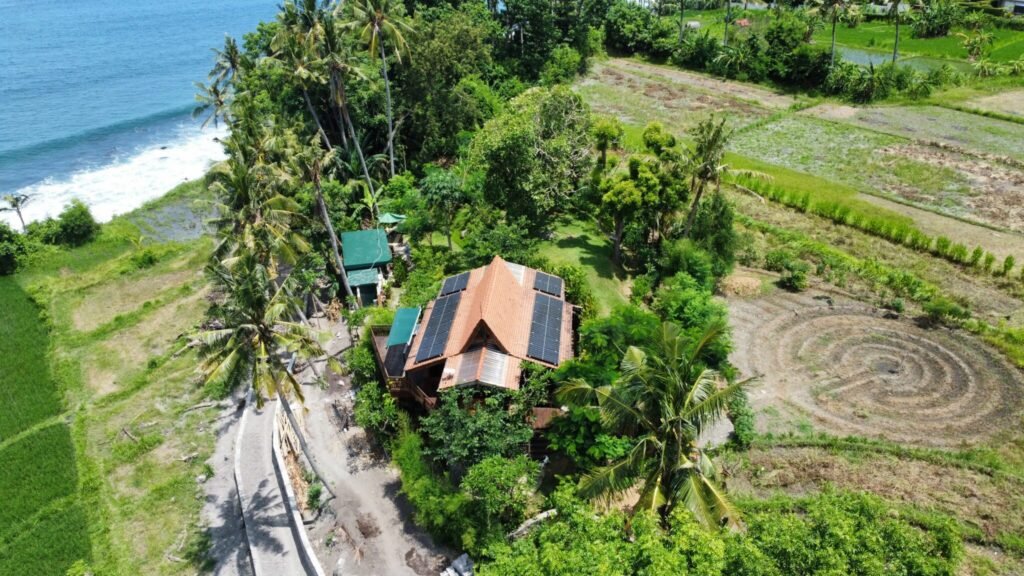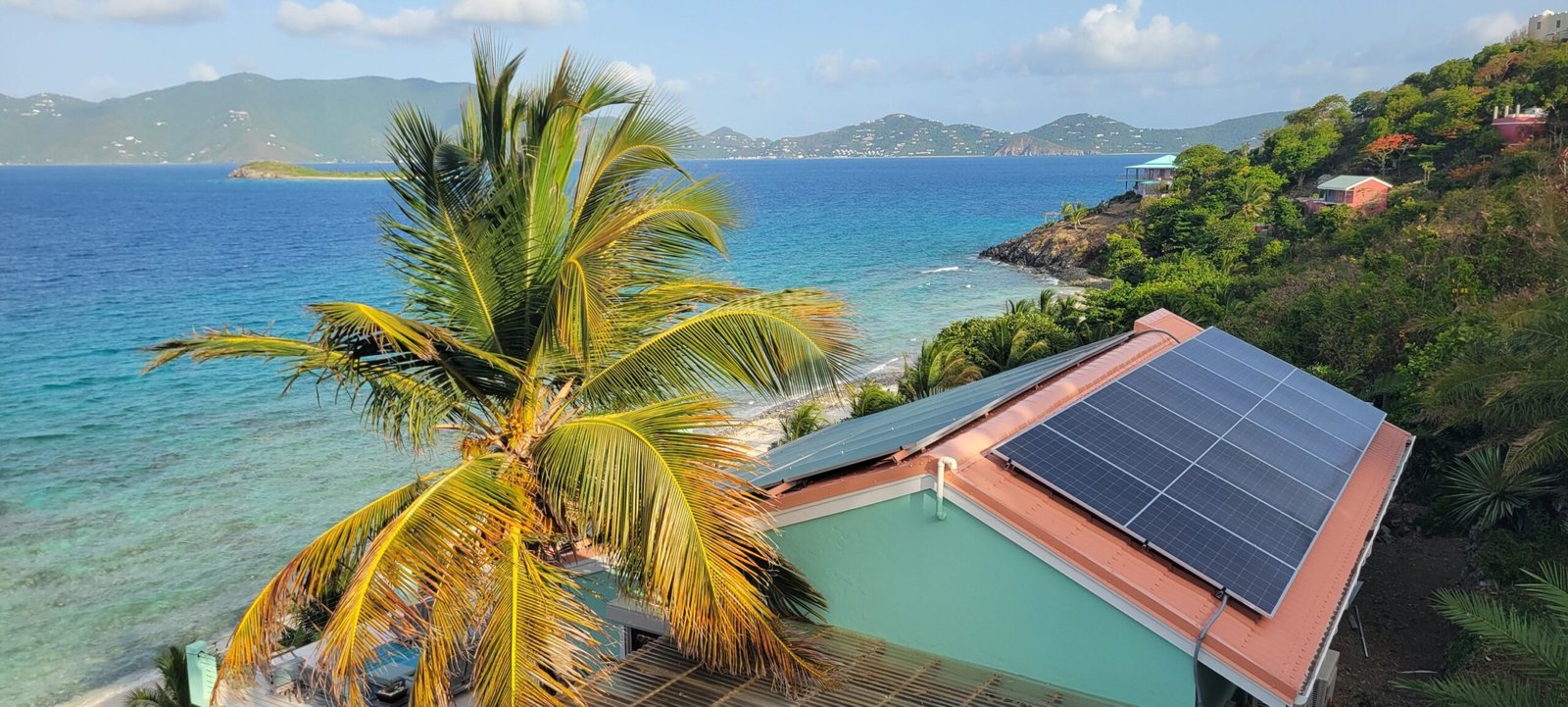Off-Grid Solar Power in Thailand: Full Energy Independence?
As global interest in sustainable living grows, many individuals are turning to alternative energy sources to reduce their environmental impact and achieve energy independence. In Thailand, solar energy is quickly becoming a popular solution, particularly for those in remote areas, rural locations, and resorts where the national grid is either unreliable or unavailable. The concept of going fully off-grid with solar power is gaining traction, as it allows people to take control of their energy needs while embracing eco-friendly living. But is it truly feasible to achieve total energy autonomy with solar power in Thailand? In this article, we’ll delve into the practical aspects, costs, and numerous benefits of solar energy in Thailand. Whether you’re interested in reducing your carbon footprint or seeking self-sufficiency, solar power offers an attractive solution for those pursuing off-grid living in this tropical country.
The Rise of Solar Energy in Thailand
Thailand has emerged as a leader in renewable energy adoption in Southeast Asia, particularly in solar power. Its tropical climate, characterised by abundant sunlight throughout the year, provides an ideal environment for solar photovoltaic (PV) systems to flourish. This consistent sunshine allows solar panels to generate electricity efficiently, making solar energy a reliable resource for both residential and commercial use. In recent years, Thailand has made significant strides in achieving its renewable energy goals, setting ambitious targets for clean energy generation. The Thai government has supported this transition by offering incentives and subsidies for solar installations, encouraging widespread adoption of solar power. As a result, Thailand is becoming a hub for sustainable living, attracting individuals and businesses interested in reducing their environmental impact. With the growing emphasis on clean energy, Thailand is not only contributing to the region’s energy future but also leading by example in the global transition to renewable energy sources.
Understanding Off-Grid Solar Power Systems
Going fully off-grid means producing and storing all your own energy, completely independent of the national grid. In Thailand, solar power systems make this possible through photovoltaic (solar) panels that capture sunlight and convert it into electricity. This energy is then stored in deep cycle batteries to ensure a constant power supply, even when the sun isn’t shining. To create a stable and reliable energy system, several components are involved, including solar panels, a solar inverter to convert direct current (DC) into alternating current (AC), and a solar charge controller to regulate the flow of electricity into the batteries. These elements work together seamlessly to ensure the efficient generation, storage, and distribution of power. This self-sufficient energy setup allows individuals to enjoy energy autonomy and reduce their reliance on the traditional grid, which is particularly beneficial for remote areas in Thailand where access to reliable electricity may be limited.
Why Solar Power Is Ideal for Thailand’s Climate
Thailand’s climate offers exceptional conditions for solar power systems, making it an ideal location for harnessing solar energy. With average daily sunlight ranging from 5 to 6 hours, solar panels can generate ample electricity to meet the needs of an off-grid home. The country’s tropical climate ensures abundant sunlight, which maximises solar energy production, particularly in comparison to regions with less sun exposure. Solar panel efficiency in Thailand is typically high, as consistent sun exposure throughout the year allows panels to operate at their peak performance. This consistent solar resource makes it easier for homeowners and businesses to depend on solar energy year-round. Moreover, the favourable conditions reduce reliance on traditional grid power, providing a sustainable and cost-effective solution for off-grid living in Thailand. With the right setup, solar systems can easily meet energy needs, even in remote locations, contributing to a more sustainable and independent lifestyle.

How Much Power Do You Need for Off-Grid Living?
Before committing to an off-grid solar system in Thailand, it’s essential to assess your energy consumption to determine the system size that best suits your needs. Homes in rural locations typically have lower energy requirements compared to urban areas, making it easier to go fully off-grid. In these situations, a smaller solar array and fewer batteries may be sufficient. However, if you plan to power larger appliances or run a commercial property, you’ll need a more robust solar system. Larger systems require a greater number of solar panels to capture more sunlight, along with increased battery storage to store excess power for cloudy days or nights. It’s also important to consider seasonal variations in sunlight, particularly during the rainy season, to ensure that your system is designed to meet your energy needs year-round. Careful planning will help guarantee that your solar power system can provide reliable, uninterrupted energy.
Calculating the Cost of Going Off-Grid in Thailand
One of the primary considerations when deciding to go off-grid with solar power in Thailand is the cost. The price of setting up an off-grid solar system can vary greatly, depending on the size of the system and the type of equipment selected. Monocrystalline solar panels, which offer the highest efficiency, typically come with a higher price tag. However, they are more effective in converting sunlight into energy, making them ideal for those with limited space. Alternatively, polycrystalline and thin-film solar panels are less expensive, but they may not be as efficient. Beyond the panels themselves, it’s important to consider additional components like solar battery storage, solar inverters, and solar charge controllers. These components ensure that the energy generated is stored and regulated properly, and they add to the overall cost of the system. When planning an off-grid solar setup in Thailand, budgeting for all these elements is crucial for a successful installation.
Solar Battery Storage: A Key to Off-Grid Power
To go fully off-grid with solar power, efficient energy storage is crucial to ensure a continuous supply when sunlight is unavailable. In Thailand, solar battery storage is an essential component for anyone seeking energy independence. The most commonly used storage systems are deep cycle batteries, which are specifically designed to provide consistent power over extended periods. These batteries store the excess energy generated during the day for use at night or during periods of low sunlight. The required number and size of batteries depend on your household or business energy consumption, as well as the overall capacity of your solar power system. For larger energy demands, more batteries will be needed to ensure a stable power supply. As the efficiency and affordability of solar storage solutions continue to improve, solar battery storage in Thailand becomes an increasingly reliable option for those looking to achieve sustainable, off-grid living.
Solar Power Systems for Homes vs. Commercial Use
Whether you’re aiming to power a sustainable home in Thailand or a commercial property, off-grid solar solutions can be customised to fit various needs. Residential properties often require smaller solar power systems, as energy consumption is generally lower. In contrast, businesses, resorts, and larger commercial operations may need much larger solar arrays to meet their higher energy demands. Despite the scale, even larger properties stand to benefit from off-grid solar systems, particularly in regions where access to the national grid is either unreliable or completely unavailable. For these properties, an off-grid setup offers energy security, reducing reliance on the grid and ensuring a constant, reliable power supply. Off-grid solar systems in Thailand also provide a sustainable and cost-effective way to meet energy needs, as they can significantly reduce electricity bills and help businesses and homeowners contribute to a greener, more eco-conscious environment.
Challenges of Off-Grid Solar Power in Thailand
While solar energy in Thailand offers a promising solution for off-grid living, there are challenges to consider. One of the primary hurdles is the reliability of solar power during the rainy season or on cloudy days, which can reduce energy production. To overcome this, it’s important to invest in an appropriately sized solar array and adequate battery storage to ensure continuous energy availability, even during periods of low sunlight. Another challenge is the initial cost of installing a solar power system, which can be a significant investment for many. The costs of solar panel installation in Thailand as well as the battery storage can add up, especially for larger systems. However, despite the upfront expense, the long-term benefits often outweigh the initial financial burden. Over time, savings on electricity bills and increased energy independence can make solar energy a highly cost-effective solution for those looking to embrace sustainable living in Thailand.

Solar Energy Incentives and Regulations in Thailand
Thailand has introduced a range of solar incentives to promote the adoption of renewable energy, particularly solar power. The Thai government offers solar grants, subsidies, and tax incentives for both residential and commercial properties that choose to install solar energy solutions. These initiatives aim to make solar power more accessible and affordable, supporting the country’s transition to clean energy. However, it’s essential to familiarise yourself with the solar regulations in Thailand, as certain regions may require specific permits for off-grid solar systems. Compliance with local regulations ensures a smoother installation process and avoids legal issues down the line. Additionally, it’s wise to stay informed about Thailand’s energy development plan and renewable energy targets, which are subject to change. These policies often evolve to encourage greater renewable energy adoption, and new incentives or regulations may be introduced to further support the growth of solar energy in Thailand.
Environmental Benefits of Off-Grid Solar Power in Thailand
Going off-grid with solar power provides more than just energy independence—it also plays a crucial role in environmental conservation. By harnessing the sun’s energy, you drastically reduce your carbon footprint, contributing to a cleaner, greener planet. Solar energy is a renewable resource that doesn’t produce harmful emissions, unlike traditional fossil fuels. This shift towards clean energy is vital in the fight against climate change and environmental degradation. For Thailand, this move aligns with the country’s commitment to its sustainable development goals and its efforts to reduce dependence on non-renewable resources. The use of solar power directly supports Thailand’s ambition to transition to a more sustainable energy system, decreasing air pollution and improving overall environmental health. As the world faces increasingly severe environmental challenges, adopting solar energy is one of the most effective ways individuals and businesses can make a positive impact on both the local and global environment.
Building an Off-Grid Community in Thailand
An exciting trend in Thailand is the rise of off-grid communities, where sustainable living is at the core. These communities are designed to reduce environmental impact by relying on solar power and other renewable energy sources. By pooling resources and sharing energy solutions, residents can create a self-sufficient, eco-friendly environment that doesn’t depend on external energy providers. This collaborative approach fosters a sense of community while promoting sustainability and energy independence. These off-grid living spaces often incorporate smart design, water conservation techniques, and eco-friendly building materials, making them a model for sustainable development in Thailand. This movement is gaining momentum as more people seek alternatives to traditional energy grids, particularly in rural areas where access to electricity is limited. For those looking to live more consciously and reduce their carbon footprint, these off-grid communities in Thailand offer a unique and fulfilling way of life, aligning with both environmental and personal goals.
Final Thoughts …
The future of solar energy in Thailand is bright, with immense potential for off-grid living and self-sufficient power solutions. As solar technology advances and the cost of solar panels and battery storage continues to decrease, more people in Thailand are expected to adopt solar power systems for both residential and commercial use. Thailand’s abundant sunlight, coupled with supportive government policies and incentives, creates an ideal environment for those looking to achieve energy independence. Whether in rural areas or remote resorts, the transition to off-grid solar power is becoming more accessible. For those passionate about eco-friendly living and reducing their environmental footprint, off-grid solar offers a sustainable and cost-effective solution. With the combination of natural resources and growing infrastructure, Thailand is poised to lead in the solar energy revolution, providing residents and businesses with the opportunity to embrace a greener, more self-sufficient future. If you are curious to learn more or have questions then contact us or give us a call on +66 82 704 6939 and we will be happy to chat through the best options for you and your situation.
FAQs
Off-grid solar power refers to electricity generated by solar panels that is not connected to a public utility grid. These systems operate independently, typically storing excess energy in batteries for use when the sun isn’t shining.
Off-grid solar in Thailand offers energy independence, eliminates electricity bills, provides power to remote areas without grid access, and reduces environmental impact by using clean, renewable energy.
Unlike grid-tied systems which require permits for connecting to the national grid, standalone off-grid systems generally do not require specific government permits. However, it’s always wise to check with local building codes and consult with a reputable installer.
Solar panels typically last 25-30 years or more. Inverters usually have a lifespan of 10-15 years, while batteries vary significantly, from 5-15 years depending on type, quality, and usage.
Yes, an off-grid solar system can power an entire home in Thailand, including high-consumption appliances like air conditioning, if it is appropriately sized with sufficient solar panels and battery storage capacity to meet your energy demands.
Batteries are crucial for off-grid systems as they store excess solar energy generated during the day. This stored energy is then used to power your home during the night, on cloudy days, or when solar generation is low.
Common battery types include lead-acid (flooded, GEL, AGM) and lithium-ion (LiFePO4 being the most popular for solar). Lithium-ion batteries offer longer lifespans, higher efficiency, and less maintenance but come at a higher upfront cost.
System sizing involves a detailed energy audit to determine your daily electricity consumption (in Watt-hours or Kilowatt-hours). This dictates the number of solar panels needed, the capacity of the battery bank, and the appropriate inverter size.
While solar generation is reduced during the rainy season due to less sunlight, a properly sized off-grid system with adequate battery storage can maintain power. Some systems may include a backup generator for extended cloudy periods.
Maintenance typically involves cleaning solar panels periodically to remove dust and debris, checking battery connections, monitoring system performance, and ensuring no shading issues on the panels.
Some homeowners start with smaller off-grid systems for critical loads and expand over time. However, a fully integrated off-grid system is often designed as a complete unit for optimal efficiency and performance.
Off-grid systems are independent and store power in batteries, suitable for remote locations. Grid-tied systems are connected to the utility grid, often feeding excess power back for credits, and don’t require batteries for primary function.
While Thailand has promoted renewable energy, specific government incentives or subsidies are more commonly targeted at grid-tied solar farms or businesses. Direct subsidies for residential off-grid systems are less common but policies can change.
High temperatures in tropical climates like Thailand can slightly reduce the efficiency of solar panels. However, modern panels are designed to perform well in such conditions, and the abundant sunlight still makes solar highly viable.
Yes, integrating a backup generator is a common and highly recommended practice for off-grid systems, especially for larger homes or those requiring higher reliability. The generator can kick in automatically to charge batteries during extended low-sun periods or high demand.
The payback period varies widely based on initial cost, your current electricity consumption, and the rising cost of grid electricity. It can range from 7 to 15 years or more, considering the longevity of the system.
Look for installers with a proven track record, good customer reviews, relevant certifications, and expertise in off-grid system design. Ask for references and detailed proposals.
While the upfront cost is higher, eliminating monthly electricity bills can lead to significant long-term savings. The cost of batteries is a key factor, and their replacement cycles should be factored into long-term financial planning.
For properties in remote areas or those seeking eco-friendly features, a well-designed and reliable off-grid solar system can certainly be an attractive selling point and potentially increase property value.
The process typically involves: energy audit and load assessment, system design, component selection, quotation, site preparation, installation of panels, wiring, battery bank, and inverter, followed by commissioning and testing.



Thanks for this clear guide to going off-grid in Thailand. I especially appreciate the focus on environmental benefits like reducing carbon emissions and saving money long-term. The breakdown of solar inverter choices and maintenance tips fits perfectly with Thailand’s sunny climate. I’m curious if there are any government incentives or subsidies available for residents who want to switch to solar—would love to see a follow-up on that!
Thanks for the reply, great idea will look at creating a guide for Government incentives and subsidies for Thailand
This article made my solar research so much easier! The info on batteries and installation in Thailand is spot on for beginners. Knowing the local regulations and finding reliable installers is key. Thanks for simplifying off-grid solar power for homeowners and expats! 👍
Great tips on managing energy and efficient appliances in off-grid homes. This article also smartly highlights current solar trends and trusted panel brands in Thailand. Going solar is not only about savings, it’s a move towards sustainable living and energy independence.
What a fantastic and thorough overview of off-grid solar power options in Thailand! The combination of battery storage with solar panels to achieve year-round energy independence is truly essential, especially given the rising demand for renewable energy solutions. As someone planning to relocate to rural Thailand, this guide provides invaluable practical advice that helps make the idea of reliable, grid-free electricity a realistic goal. The insights on installation and system components are especially helpful for anyone new to solar power.
Been thinking to go off grid for a while now, do you have more information perhaps on costs?